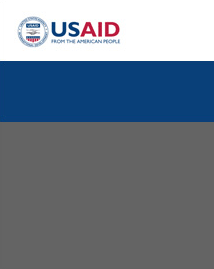Speeches Shim
The Protection and Quality of Care for Children Project addresses the rights and needs of El Salvador’s most vulnerable children by strengthening the national child protection system and improving quality of care for all children.
USAID, together with Whole Child International, supports the Salvadoran Institute for Integral Development for Children and Adolescents (ISNA) and other agencies to improve El Salvador’s child protection system. The project focuses on the social, emotional, and cognitive development of vulnerable children. Through caregiving that enables stable, nurturing relationships, Whole Child International, ISNA, the National Council for Children and Adolescents (CONNA), and partners, with support from USAID, will help build resilience in vulnerable children and families to mitigate the effects of violence in their communities. At the same time, early childhood interventions will prevent children from resorting later in life to joining a gang or other criminal activity, thus helping to end the cycle of extreme violence that drives people to illegally immigrate.
The project supports a comprehensive assessment of the national child protection system that will be used to revise policies, practices and protocols to improve care and to ensure that children live in safe homes. In particular, the project is helping to reunify families, including recently returned unaccompanied children migrants.ssessments will explicitly address the question of how to target and integrate migrant children into an improved case management system under which they are reunited with family or integrated into foster or kinship care to reduce repeat migration.
Assessments will explicitly address the question of how to target and integrate migrant children into an improved case management system under which they are reunited with family or integrated into foster or kinship care to reduce repeat migration.
A major component of the project includes training and follow-up to caregivers, technical staff members, center directors, and government staff on child protection, early childhood development care and childcare management best practices. Training is followed by mentoring and coaching that translates learning into behavior change. The USAID project will provide resources directly to ISNA’s training school to create capacity within ISNA to implement a training program, including training for parents.
Finally, the project promotes the policies and protocols that will enable the transformation of residential care to include family-based care. An abundance of evidence shows that family-based care is better for children. The project will leverage existing resources and goodwill within the residential care community and selected institutions to refocus on family preservation, reunification and foster/kinship care. Whole Child and ISNA, with USAID support, will design and test an alternative care model.


Comment
Make a general inquiry or suggest an improvement.